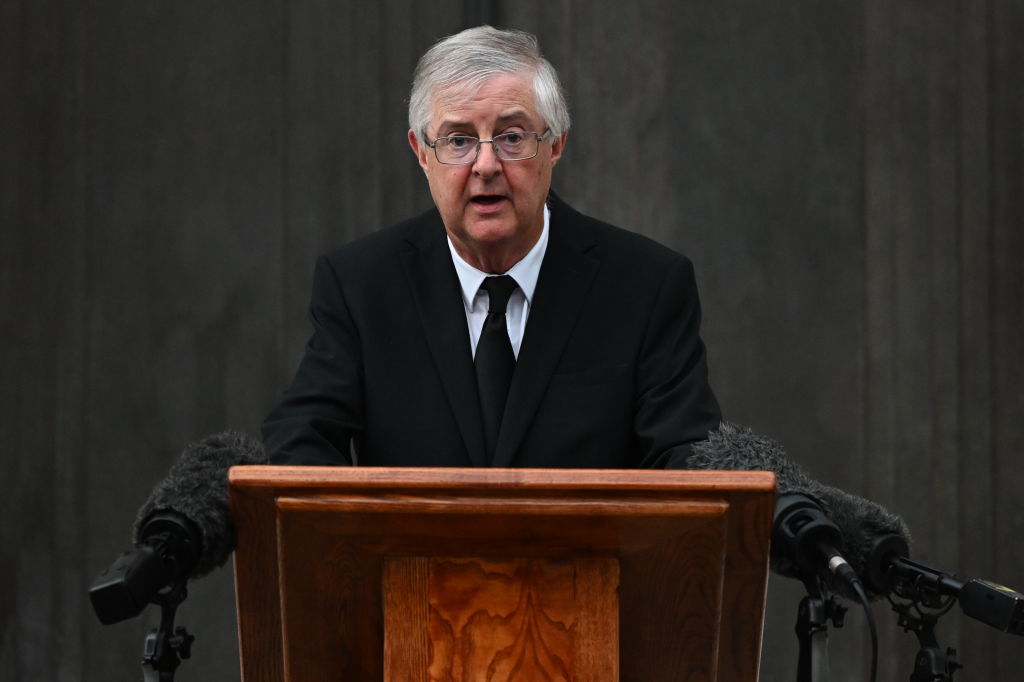In Britain it is rare for politicians to be able to decide how their career ends. But that’s not the case in Wales. Welsh Labour leaders enjoy such a tight grip over events that they can pick the exact moment they leave the damp stage at Cardiff Bay, even after a remarkably long time in power. Rhodri Morgan served as First Minister for close to ten years; Carwyn Jones was in the job for nine. Neither experienced serious challenges to their leadership.
In the absence of parliamentary drama, electoral upsets and competent opposition, this slumberous pattern will continue. After four years, Mark Drakeford has indicated it will soon be time for him to go.
As so often with the First Minister there has been little theatre when it comes to his departure. Unlike his predecessor Jones, who dramatically (and unexpectedly) announced his resignation at a party conference in 2018, Drakeford has been consistent about not wanting to be leader forever. Even when he ran to be First Minister in 2018, he proclaimed ‘no burning desire’ to be leader.
In a recent interview the First Minister conceded he didn’t expect to be in the job beyond 2024. The time is right, he says, to elect ‘somebody who looks ahead to the next 25 years’ of devolution. What that means in reality is that another Labour politician will wear the crown of Welsh politics, after an internal leadership election concludes.
Becoming leader of Labour in Wales tends to mean an almost guaranteed decade in power. And there are two obvious candidates to take the helm. Jeremy Miles and Vaughan Gething are at the heart of the devolved government, holding briefs for education and the economy respectively. The only problem is that we have little idea about the kinds of government they would want to lead.
As Health Minister during the pandemic, Gething is a more familiar face in Wales. He also has more ministerial experience, which will appeal to elected members’ craving for stability, and an understanding of the ins-and-outs of the leadership process after running against Drakeford last time.
But it may well be his close links to the trade unions (Gething was the youngest leader of NUS Wales and the first black president of the country’s TUC) which seals the deal for him. He is already on carefully choreographed manoeuvres: last month he was in Qatar for the World Cup while banging the drum for investment in Wales. He has also begun in interviews to outline his economic vision for the country.
Miles, meanwhile, has had a rapid rise through Welsh politics. After entering parliament in 2016 he was promoted the following year to the cabinet, eventually becoming minister for education in 2021. He is a fluent Cymraeg speaker, and has established clear ownership of the government’s Welsh language strategy to achieve one million speakers by 2050. The only problem is that the latest census figures show that the number of Welsh speakers has declined during the last decade.
What separates the two men most clearly is their vision for the country and their relationship to the wider Labour party. Miles, rightly or wrongly, is perceived to be more closely aligned to the tradition established by Rhodri Morgan of ‘clear red water’ between Welsh and Westminster Labour. This counts for a lot in Welsh Labour. Gething’s recent appearance at UK Labour’s business conference, on the other hand, suggests he may be much closer to the party in Westminster.
With any coronation comes uncertainty. Eventually, Welsh Labour’s ‘chosen one’ will have to face the electorate in the 2026 Senedd election. So far the country’s ailing economy, and falling standards in education and health, have not deterred voters from pledging their support for Welsh Labour. Missed policy targets now seem to be accepted by voters.
But by 2026, a generation of Welsh Labour rule will have passed. As they always eventually do, voters may grow tired of Labour by this point – particularly if they are in charge at Westminster, too.
The prospect of Prime Minister Keir Starmer poses its own challenges for Welsh Labour. The party has demanded that further powers flow down the M4 from London to Cardiff Bay. But Gordon Brown’s constitutional commission, released last year, suggests that continued devolution won’t be as swift or sweeping as many would like in Wales. How the next First Minister manages that tension will continue to define internal Labour politics. Soon a row may burst out into the open.
As First Minister, Drakeford has navigated these political waters skilfully. His electoral mandate, public profile and power base have made him an almost indestructible leader. His shadow over Labour and Welsh politics looms large. People often forget that Drakeford was an adviser to his mentor Rhodri Morgan in the first decade of devolution; in the second he became one of its chief ministers and eventual figurehead. But unlike other classicists in British politics, the legend of Cincinnatus tending to his plough will not dwell on Drakeford’s mind as he steps down.
Above all, Drakeford will be frustrated that speculation about his successor has already started. Soon he will become yesterday’s man. The race to succeed him has begun.






Comments